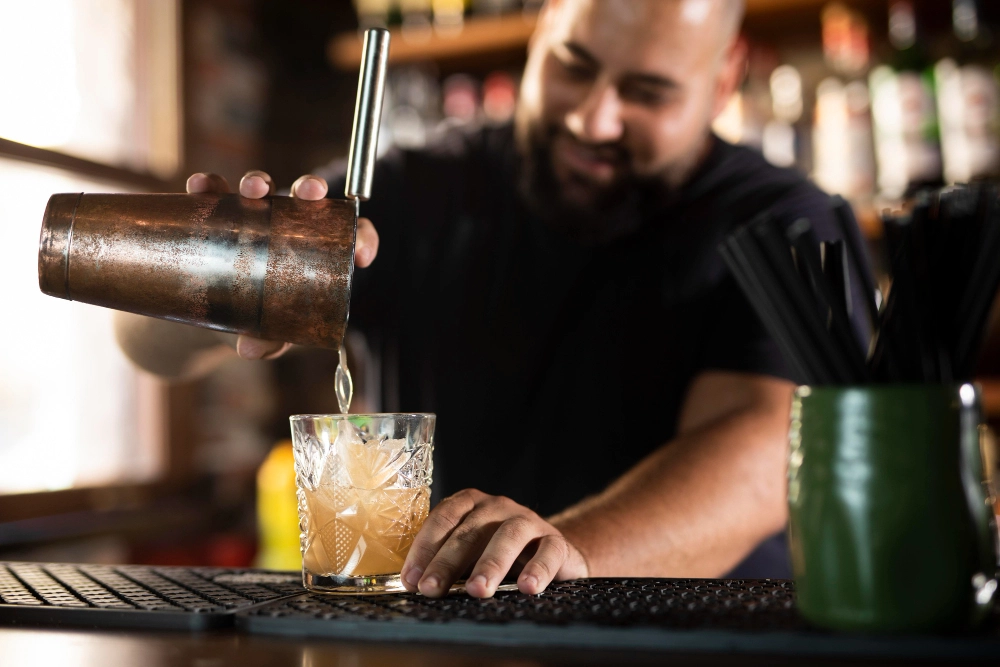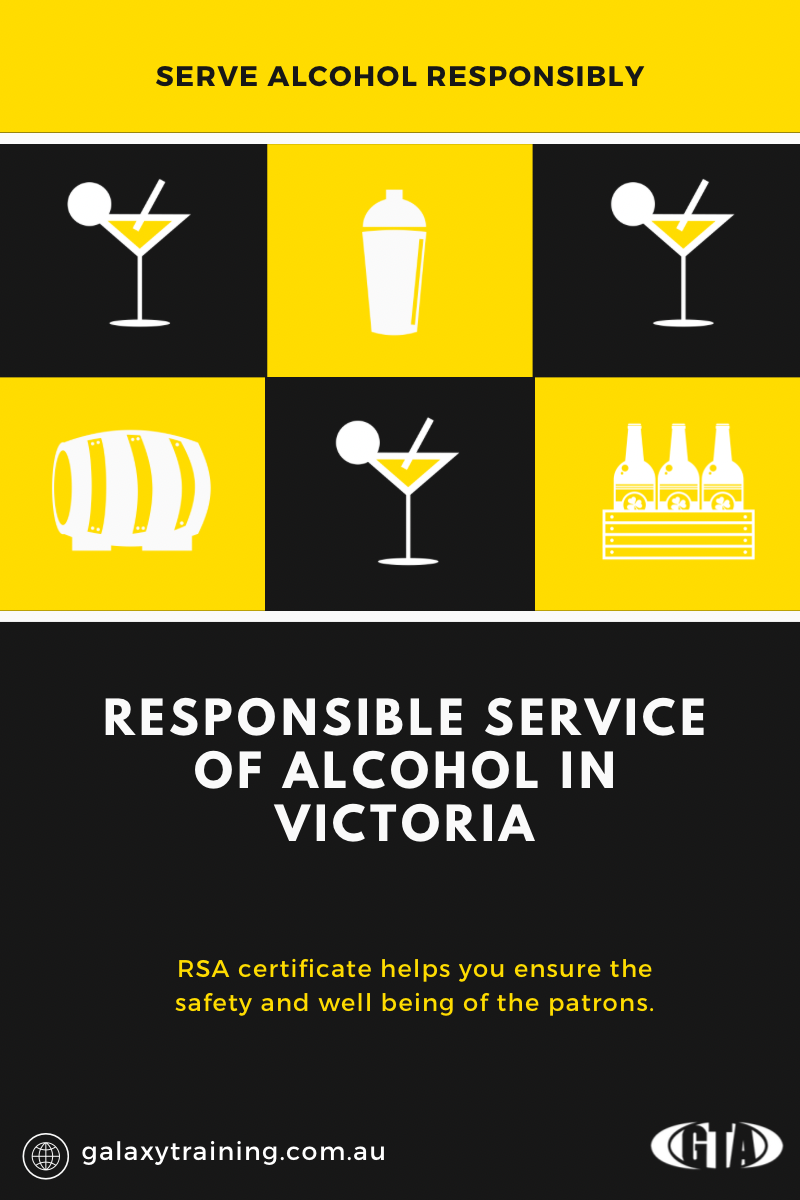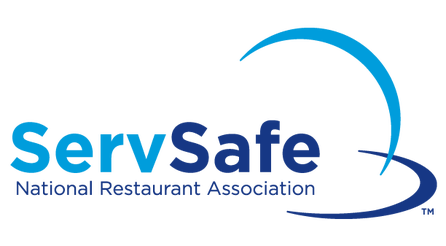What You Need to Know About the servsafe food handlers card and Its Importance
What You Need to Know About the servsafe food handlers card and Its Importance
Blog Article
Master Responsible Alcohol Solution With Comprehensive Accreditation Programs
The proficiency of accountable alcohol solution is not simply a governing demand; it is an essential element that boosts the credibility and functional integrity of facilities within the hospitality market. Comprehensive certification programs use important insights into local laws, efficient treatment techniques, and client involvement techniques. By buying these training efforts, businesses can promote a society of responsibility among their personnel, mitigating threats and enhancing client satisfaction. The path to effective application and its long-lasting advantages might not be as uncomplicated as it seems. What challenges lie ahead for those that look for to raise their solution standards?

Relevance of Accountable Alcohol Service
Accountable alcohol service is necessary to promoting public wellness and safety and security in facilities that serve liquors. It includes a series of methods designed to prevent the overconsumption of alcohol, minimize the threat of alcohol-related injury, and make sure a safe atmosphere for patrons and team alike. By maintaining responsible service criteria, establishments can alleviate possible events of drunkenness, which might cause mishaps, physical violence, or various other unfavorable results.
Additionally, responsible alcohol service improves the total client experience. In addition, facilities that adhere to liable solution techniques frequently experience lower insurance policy premiums and reduced lawful responsibilities.
Moreover, implementing responsible alcohol service techniques straightens with more comprehensive public health and wellness efforts focused on minimizing compound abuse and promoting community health. This aggressive strategy not just protects individual patrons but additionally adds to a much healthier society. Eventually, responsible alcohol solution is not just a legal obligation; it stands for an honest commitment to the well-being of consumers and the area at big.
Key Components of Qualification Programs
Accreditation programs for responsible alcohol solution usually incorporate a number of vital elements designed to outfit staff with the essential skills and expertise to serve alcohol securely. These programs typically consist of comprehensive training on regional and state alcohol regulations, making certain that participants understand their legal responsibilities and the repercussions of stopping working to abide.
An additional important element is the identification of signs of intoxication - servsafe food handlers card. Personnel are educated to identify behavior cues suggesting when a client might be over-served, allowing them to intervene appropriately
Furthermore, efficient communication methods are stressed, teaching staff how to engage with clients in a way that promotes accountable alcohol consumption. This includes training in conflict resolution methods, enabling team to take care of difficult situations calmly and expertly.
In addition, programs regularly include sensible circumstances and role-playing workouts, supplying individuals with real-life examples to practice their skills. Continuous education and sources are crucial for keeping understanding and skills over time, as regulations and ideal methods develop. With each other, these parts produce an extensive framework that encourages personnel to foster a more secure drinking look at this web-site environment while minimizing responsibility for facilities.
Benefits for Staff and Facilities
Staff and facilities alike enjoy considerable gain from taking part in accountable alcohol service qualification programs. For staff, these programs boost understanding and skills connected to alcohol service, outfitting them to identify indicators of intoxication and apply efficient intervention approaches. This training not only fosters a feeling of self-confidence among staff members however additionally promotes a society of security and duty in the work environment.
For facilities, buying qualification programs can result in lowered liability and less incidents connected to over-serving. By ensuring that team are well-trained in liable solution practices, facilities can minimize risks connected with alcohol-related cases, thereby securing their reputation and economic security. Many jurisdictions use motivations, such as reduced insurance premiums, for certified establishments.
Furthermore, applying qualified practices can boost customer fulfillment and browse around this web-site commitment. Clients are more probable to return to venues that prioritize their safety and well-being. Ultimately, a commitment to accountable alcohol solution not just grows a favorable atmosphere however likewise improves the general operational effectiveness of establishments, making it a clever financial investment for lasting success in the friendliness market.
Typical Difficulties in Alcohol Service
Making sure efficient alcohol service is not without its difficulties, also in facilities dedicated to accountable methods. One significant challenge is the need for team to properly examine customers' alcohol usage levels. servsafe food handlers card. This requires a keen understanding of just how different elements, such as food intake, resistance, and private differences, affect drunkenness
Additionally, the pressure to take full advantage of sales can contravene responsible solution procedures. Employees might face troubles in declining service to inebriated people, especially in social settings where peer pressure and assumptions are common.
Another obstacle is staying upgraded with regional laws and regulations pertaining to alcohol service. Conformity is vital, yet frequent modifications in legislation can develop confusion and might lead to unintentional offenses.
Educating programs might not always cover the her explanation subtleties of real-world scenarios, leaving team ill-equipped to take care of complex scenarios. Inconsistent communication in between administration and employees relating to expectations for accountable solution can further worsen these concerns.
To navigate these difficulties effectively, facilities should cultivate an atmosphere of assistance, emphasizing the value of responsible service while supplying the essential tools and training for personnel to do well.
Steps to Get Certification
To acquire Liable Alcohol Service Accreditation, candidates generally begin by investigating the details needs mandated by their local regulative authorities. These demands might vary substantially depending upon the area, so it is necessary to acquaint oneself with the pertinent laws and policies.

After choosing a program, candidates should finish the requisite training, which typically covers subjects such as identifying drunkenness, understanding legal duties, and executing techniques for liable service. Individuals should actively involve with the product, as this knowledge is crucial for reliable alcohol service.

Adhering to training, candidates typically take an evaluation to examine their understanding of the product. Effective conclusion of this assessment results in accreditation.
Final Thought
To conclude, mastering responsible alcohol solution via comprehensive certification programs is vital for promoting security and improving client experiences within the friendliness sector. By outfitting team with the essential expertise and skills, facilities not just reduce risks associated with overconsumption and lawful responsibilities but also grow a society of duty. This commitment to accountable service ultimately results in enhanced customer loyalty and functional success, enhancing the relevance of recurring training and adherence to alcohol solution criteria.
Report this page